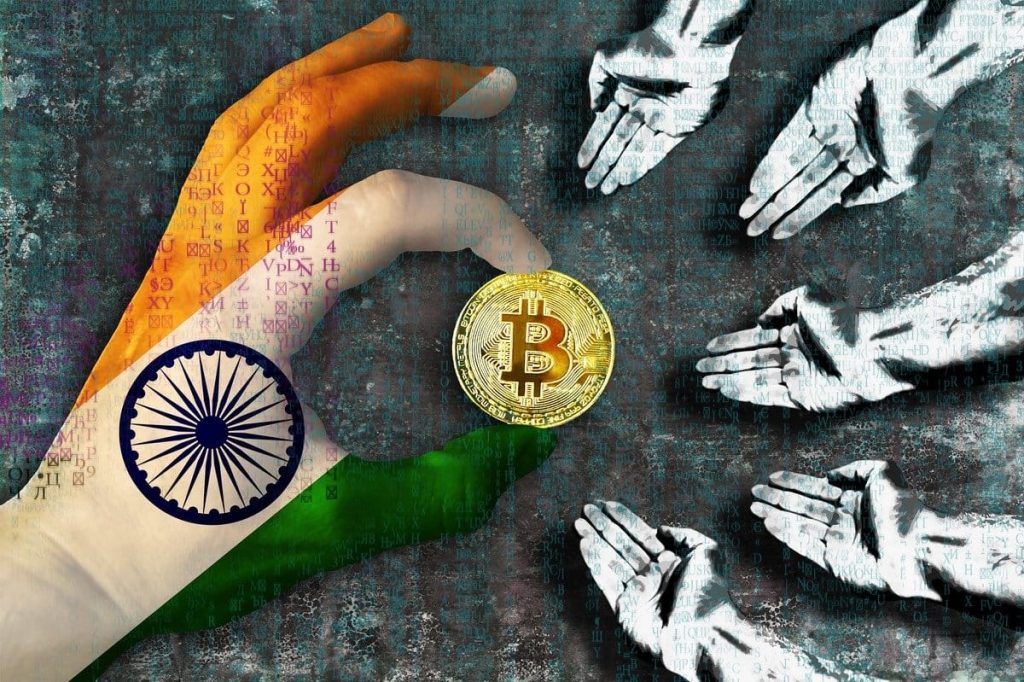The recent surge in the price of Bitcoin (BTC) has injected fresh life into Indian cryptocurrency exchanges, as trading volumes on the top platforms reached a ten-month high in February.
CoinDCX, WazirX, and BitBNS, the leading Indian exchanges, recorded trading volumes of $2.6 million, $3.4 million, and $7.8 million last month, respectively, BusinessLine reported, citing data provided by crypto research firm Crebaco.
Per the report, these figures represent their highest monthly volumes since June 2023, although they still fall short of the historic peak witnessed in 2021.
Increased Demand for Crypto Behind Surge in Trading Volumes
The improved sentiment and global demand for cryptocurrencies have been key drivers behind the surge in trading volumes on Indian exchanges.
“The uptick in trading volumes on our exchanges is driven by the improvement in sentiment and demand globally,” Rajagopal Menon, the Vice-President at WazirX, said.
“2024 will be the year of crypto, although the Centre’s tax regime will dampen the volume on Indian exchanges.”
Bitcoin, currently trading at around $67,000, is approximately 2% below its all-time high reached in November 2021.
The cryptocurrency’s increased demand can be attributed to new exchange-traded funds (ETFs) aggressively purchasing Bitcoin, outpacing the willingness of long-term holders to sell their holdings.
Bitcoin, the largest cryptocurrency by market value, has surged by more than 50 percent this year, with most of the gains occurring in recent weeks, as inflows into US-listed Bitcoin funds have soared.
This bullish trend is expected to continue as Bitcoin approaches a halving cycle scheduled for April 2024, potentially driving further demand and price increases.
The recent improvement in global market sentiment towards Bitcoin has led to a modest uptick in trading volumes on Indian exchanges.
These platforms have grappled with low trading volumes since the bear market of 2022-23, compounded further by the Indian government’s imposition of a 30 percent tax on cryptocurrency trading.
“Deposits increased by 80 percent in the last three months compared to the previous three months,” Menon said, further highlighting the positive impact of the market rally.
“There was a 100 percent increase in total transactions across the platform during the same period. Additionally, sign-ups witnessed a remarkable 200 percent surge.”
India Pushes Forward with CBDC Plans
Last month, Reserve Bank of India (RBI) Governor Shaktikanta Das suggested using offline solutions to boost the adoption of the central bank’s digital rupee in remote areas.
The RBI will evaluate various offline solutions, including proximity and non-proximity-based options, in hilly, rural, and urban environments to address this challenge.
“It is proposed to introduce offline functionality in CBDC-R to enable transactions in areas with poor or limited internet connectivity,” Governor Das said during a review meeting of the Monetary Policy Committee on February 8.
The RBI’s digital rupee system currently facilitates person-to-person (P2P) and person-to-merchant (P2M) transactions using digital rupee wallets provided by pilot banks.
The introduction of offline capabilities is part of the RBI’s efforts to enhance the digital rupee’s usability and accessibility.
Read the full article here















